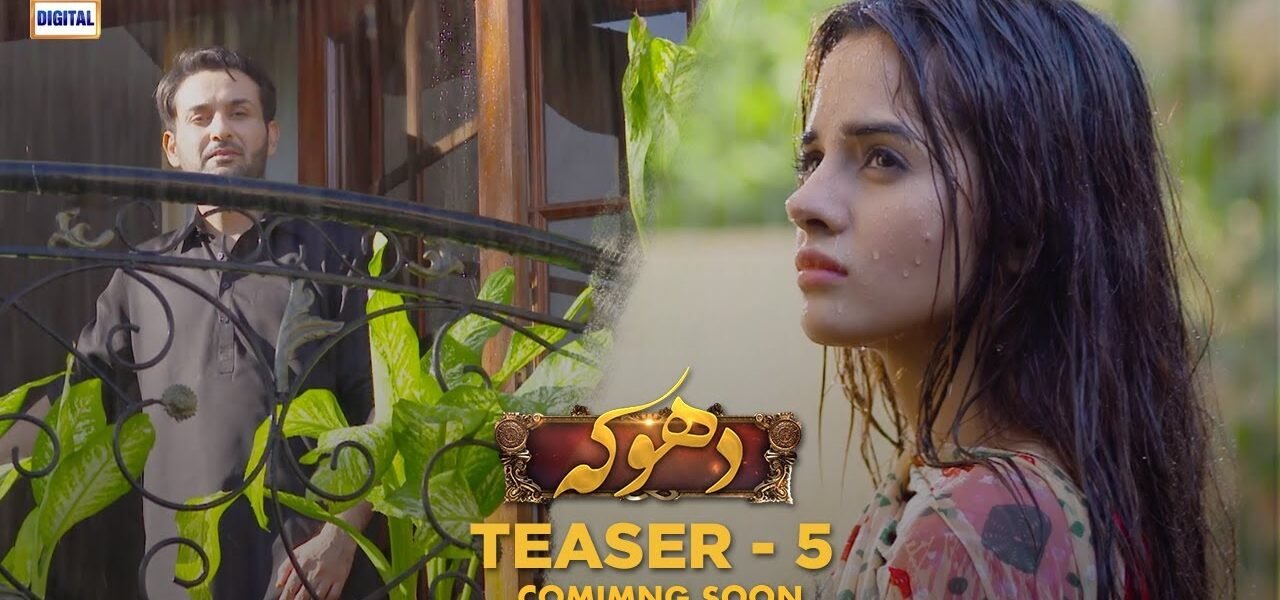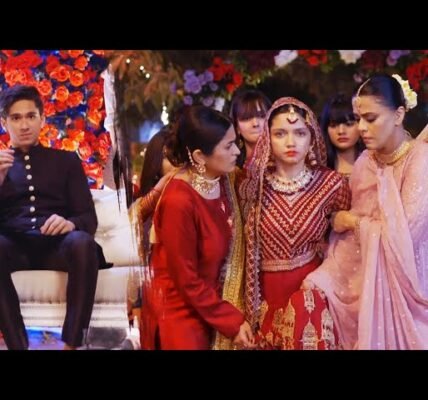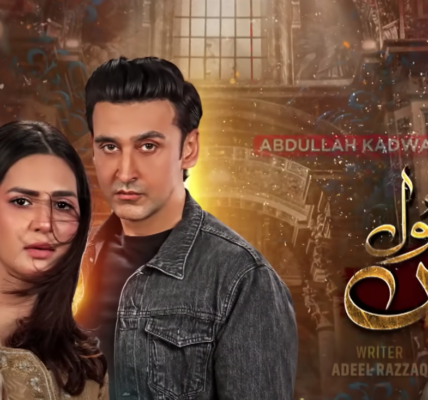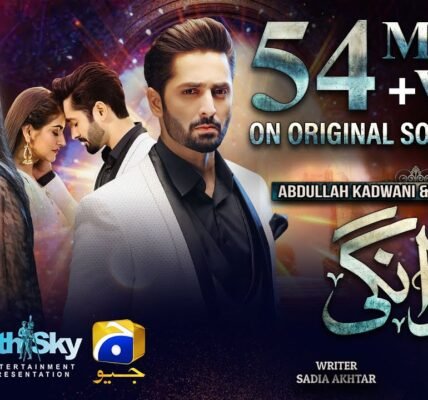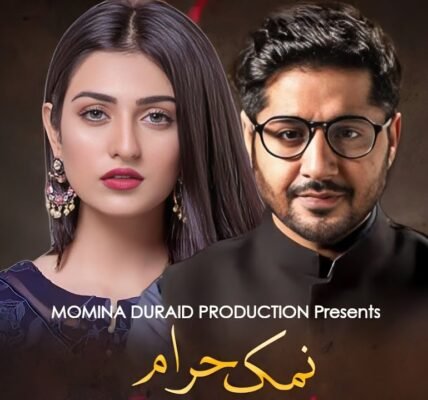Dhoka Drama Review, Cast ,Timings, Ratings, Director
Dhoka drama review is a recent addition to the world of Pakistani dramas, offering a gripping storyline filled with suspense, betrayal, and unexpected twists. This drama made its mark on the audience with its intense plot, powerful performances, and emotional depth. Premiering on Geo TV, Dhoka has quickly become a fan favorite, thanks to its ability to delve into the darker sides of human nature, where deceit and dishonesty take center stage.
Directed by Asim Ali and written by the talented Misbah Ali Syed, Dhoka explores themes of trust, love, and deception in relationships, reflecting the moral and social dilemmas many people face today. In this detailed review, we will discuss the cast, storyline, thematic elements, direction, and audience reception of Dhoka, alongside its success and shortcomings.
Cast and Characters
The ensemble cast of Dhoka includes seasoned actors who have contributed significantly to the overall impact of the drama. The story revolves around complex relationships, and the performances of these actors bring a deeper level of realism and intensity to the drama.
Cast:
Affan Waheed
Director:
Farooq Rind’s direction in *Dhoka* is commendable, bringing out the nuances of the story and characters with sensitivity and depth. Rind’s visual storytelling, use of symbolism, and attention to detail contribute to the drama’s impact, keeping viewers engaged and invested in the narrative.
Storyline and Plot
At its core, Dhoka is a story about betrayal, exploring the moral ambiguity of relationships. The drama centers around Alizeh, a young woman who believes she has found love in Ashar. However, her life takes a dark turn when she discovers that Ashar has deceived her in ways that cut deep into her sense of trust. The story follows Alizeh’s journey as she deals with the emotional and psychological fallout of this betrayal, grappling with whether to seek revenge or forgive.
Ashar, on the other hand, is portrayed as a man who is not entirely villainous but deeply flawed. His deceit is not driven by malice but by fear and insecurity, making him a multi-dimensional character. Sara, his accomplice and confidante, adds complexity to the story by manipulating situations to her advantage. Zain, another important character, is also drawn into the web of lies, adding more tension and conflict to the unfolding drama.
The plot of Dhoka is intricately woven, with each episode revealing new layers of betrayal and manipulation. The storytelling keeps the audience on edge, as trust is continually broken, and the characters are forced to confront the consequences of their actions. As the drama progresses, the viewer is left questioning the true motives of each character, making Dhoka a deeply engaging and thought-provoking watch.
Themes Explored
Dhoka delves into several profound themes, making it more than just a typical love-and-betrayal drama. The show sheds light on human emotions and moral dilemmas, forcing viewers to think critically about the nature of trust and deception.
- Betrayal and Trust
The theme of betrayal is at the heart of Dhoka. The characters’ relationships are built on a fragile foundation of trust, which is repeatedly shattered as the story progresses. The drama explores how betrayal can change individuals, pushing them to the brink of despair, and how trust, once broken, is difficult to rebuild. - Love and Revenge
The line between love and revenge is blurred in Dhoka. Alizeh’s love for Ashar is deep, but his betrayal pushes her toward seeking revenge. This duality is explored through her character arc, where the audience witnesses her internal struggle between holding onto the love she once cherished and exacting revenge on those who wronged her. - Moral Ambiguity
One of the most interesting aspects of Dhoka is its portrayal of moral ambiguity. The characters are not painted as purely good or evil. Ashar’s deception is not out of pure malice, and Sara’s manipulations stem from her own insecurities and personal demons. This moral complexity makes the drama more relatable and reflective of real-life human behavior. - Societal Expectations
Dhoka also touches upon societal pressures and how they influence personal decisions. Alizeh’s choices are often framed by what society expects of her, particularly in terms of loyalty and forgiveness. The drama subtly critiques these societal norms, showing how they often lead to emotional turmoil.
Direction and Cinematography
Directed by Asim Ali, Dhoka stands out for its tight direction and seamless execution of suspenseful moments. Asim Ali’s ability to maintain the drama’s intensity while delving into the emotional depth of the characters is commendable. His direction keeps the audience engaged throughout the drama’s runtime, balancing plot development with emotional arcs.
The use of lighting and camera angles plays a key role in highlighting the drama’s tense moments. The close-ups of characters during intense emotional confrontations heighten the sense of betrayal and tension. The dark, moody lighting in some of the key scenes further emphasizes the drama’s exploration of deceit and emotional darkness.
The pacing of the drama is well-maintained, with each episode revealing enough to keep the viewer invested without giving too much away. The cliffhangers at the end of each episode ensure that the audience remains hooked, eagerly awaiting the next chapter in the story.
Dialogues and Screenplay
Misbah Ali Syed’s writing is sharp, with dialogues that resonate deeply with the audience. The screenplay captures the raw emotions of the characters, especially during moments of confrontation. The dialogues are intense, reflecting the pain of betrayal and the complexities of relationships.
Some of the standout dialogues come from Alizeh, as she expresses her anguish and disbelief at the betrayal she faces. The emotional weight of these scenes is heightened by the delivery of the actors, particularly Zubab Rana. The interactions between Ashar and Sara also feature powerful dialogues that reveal their manipulative tendencies, adding layers to their characters.
The screenplay effectively balances drama and emotion, ensuring that the story remains engaging without becoming melodramatic. Each episode is carefully crafted to move the plot forward while deepening the characters’ emotional journeys.
Music and Soundtrack
The music and background score of Dhoka enhance the emotional atmosphere of the drama. The title track, composed by Shani Arshad, is hauntingly beautiful, perfectly capturing the essence of betrayal and heartbreak. The melancholic tune resonates with the themes of the drama, making it an integral part of the viewing experience.
The background score is subtle but impactful, especially during moments of revelation or emotional breakdowns. The music underscores the tension in key scenes, heightening the drama without overpowering the performances.
Audience Reception and Criticism
Dhoka has been well-received by audiences, with many praising the performances of the lead actors, especially Zubab Rana and Mikaal Zulfiqar. The drama’s intense plot and moral ambiguity have made it a favorite among viewers who enjoy stories that challenge their perceptions of right and wrong.
However, the drama has also faced some criticism, particularly regarding its pacing in the middle episodes. Some viewers felt that the story dragged at certain points, with repetitive plot points prolonging the narrative unnecessarily. Despite this, the drama’s overall intensity and emotional depth have kept the audience engaged.
The character of Sara, in particular, has received mixed reactions. While some viewers appreciate the complexity of her character, others feel that her manipulations are too extreme, bordering on melodrama. Nonetheless, Amar Khan’s performance has been widely praised, with many acknowledging her ability to bring depth to a morally ambiguous character.
Ratings and Popularity
Dhoka has enjoyed strong ratings since its premiere, consistently ranking among the top Pakistani dramas in terms of viewership. Its combination of suspense, emotional depth, and powerful performances has made it a must-watch for drama enthusiasts.
The drama has also sparked discussions on social media, with viewers sharing their thoughts on the characters’ decisions and the moral lessons embedded in the story.
